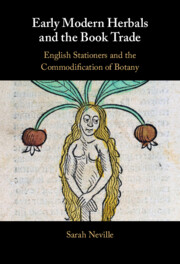When quoting early modern texts, I have retained the original spelling, including the use of u/v and i/j, with the exception of replacing the long-s ſ with s and vv with w. I have expanded contractions (except for ampersands) with supplied letters in square brackets (as in “cōmon” → “co[m]mon”), and I have declined superscript letters (as in “Mr.” to “Mr.”). I also have retained original punctuation, including the now-obsolete virgule or / glyph. With the exception of ash (æ) and ethel (œ), all ligatures are silently separated where applicable to single graphemes corresponding to modern usage. I have shortened and standardized capitalization in titles throughout. The names of early modern figures are standardized using the preferred spellings of the STC or ODNB.
For the ease of my readers’ ability to locate the particular editions I discuss, the first mention of a new title will be followed by its identification number in STC, Wing, and USTC. These numbers are also listed in the Bibliography.



